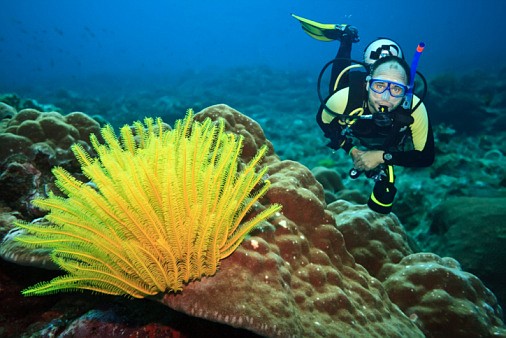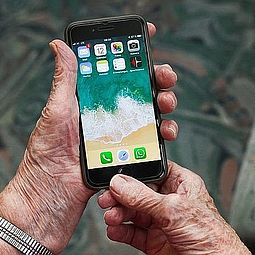A beginner's guide to SCUBA diving
March 5, 2012 at 6:00 a.m.
Some time after signing up for a SCUBA diving instruction class, a North Carolina senior took his first sea dive in the shallow estuarine waters that surround the Barrier Islands. While practicing donor breathing, the beginner was catching air through the other diver's primary regulator when they startled a nearby squid. Within half a moment, the divers were surrounded by blue-black cephalopod ink. Both divers panicked and separated. The beginner, while still struggling to learn to SCUBA dive safely, sucked in a mouth full of squid ink.
Fortunately the divers were operating under the experienced eyes of SCUBA diving instruction professionals. When the mess was cleared, the divers returned to the surface. With everyone feeling fairly safe, the beginner began to worry about ink poisoning. "You'll be fine," the instructor said. "Cephalopod ink is only harmful to certain sea creatures. However, you may feel a bit like you dyed on the inside."
Learn to SCUBA dive the right way
Retirement years should contain moments of adventure and accomplishment as well as periods of rest and refreshment. Water-focused vacations can create memorable experiences that range from strolls along the boardwalk and lounging on the beachfront, to mysterious down-deep journeys made possible by Self Contained Underwater Breathing Apparatus (SCUBA) gear. But every chosen course of adventure should be backed up with cautious planning that takes into account every possible scenario.
Not all nations follow American safety standards. For example: Cancun, Mexico, is home to some of the best SCUBA diving in the world. However, those who are seeking to learn how to SCUBA dive must be very careful when selecting a Cancun SCUBA diving instruction school. If you are going to do it, here is how to learn to SCUBA dive the right way:
Avoid Spontaneous Choices. Learning to SCUBA dive should not be a spur-of-the-moment decision. Examine your vacation goals. If SCUBA diving fits into the plans, consider taking classes at the local YMCA, community college, or other U.S. certified SCUBA-training center.
Determine Long-Range Goals. SCUBA diving instruction courses range from basic training to programs that certify open water divers with advanced training to the level of Emergency Response Rescue Diver. This OSHA- and NFPA-compliant skill set includes the ability to:
- Be a qualified Rescue Diver
- Execute search patterns
- Help prevent diving accidents
- Engage in active victim recovery
- Recognize life-threatening diving situations
- Initiate and/or supervise rescue procedures
- Practice known emergency and decontamination procedures
- Correctly manage rescue operations during and after the emergency
Perhaps these goals are too lofty for your purposes. Maybe you merely desire a quick underwater view of offshore sea life. That makes all the more reason that your SCUBA diving instruction class should be taught by men and women who are certified in these matters. Move slowly, plan in advance, and make sure that your instructor knows how to respond to underwater emergencies.
Content Provided by Spot55.com





